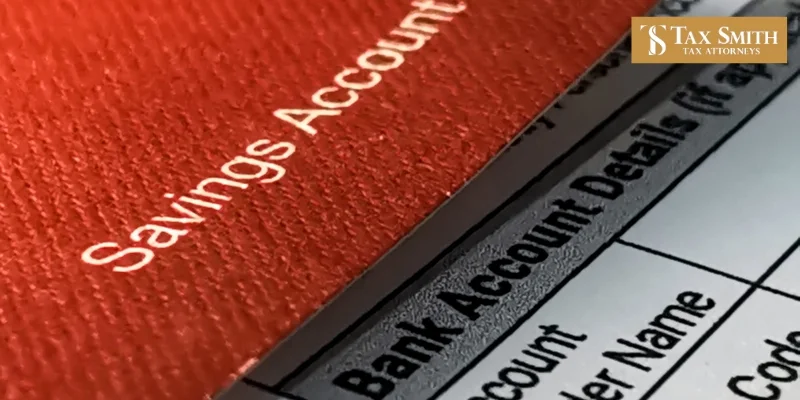A levy can be placed on your bank account by creditors whom you haven’t paid. The bank levy can prevent you from accessing your money and lead to you losing funds. It’s important to understand how to fight a levy on your bank account, what changes when the levy is for tax debt, and the options for negotiating debt with the Internal Revenue Service (IRS).

Getting a Levy Released
The most effective and immediate way to release a levy placed by any creditor is to pay off the debt the levy is for. Unfortunately, many people have a levy placed on their bank account because they are unable to afford the debt, or paying it would leave them unable to meet other important obligations.
When this is the case, you should contact the creditor to determine alternate methods of paying your debt, such as a payment plan. It can be difficult to secure this, as a creditor likely has secured court approval for the levy and is looking out for their financial interests. It’s essential to work with a bank levy attorney in Fort Lauderdale to help you determine your options and protect your rights.
When Is the IRS Required to Release a Levy?
When the levy is placed by the IRS, you have several potential options if you cannot repay the debt. Levies placed by the IRS do not require court approval, unlike commercial creditors.
You can contact the IRS immediately when you receive a notice of its intent to levy to request a release of the levy. If the levy will cause you immediate financial hardship, the IRS may release it. If a release request is refused, you can appeal this decision.
The IRS is required to release a levy in the following circumstances:
- You paid off your tax debt
- The period of debt collection ended before the levy was issued
- The levy being released will allow you to pay taxes
- You negotiate an installment agreement with terms that stop the levy
- The levy prevents you from meeting your basic living expenses
- The levy is on a property that is valued more than your tax debt, and the IRS can release the levy without it preventing the agency from collecting the debt
The IRS sent nearly 313,800 notices to third parties, such as banks and employers, requesting a levy of funds in 2024.
Negotiating Your IRS Tax Debt to Release a Levy
While paying off your tax debt is the fastest way to stop a levy, there are options if you don’t have the financial ability to pay it off. The IRS is open to negotiation with taxpayers to recover a portion of the taxes it is owed. Some of the options for addressing your tax debt include:
- Penalty abatement: There are different types of penalty abatement that allow you to clear specific penalties and their accrued interest from your tax liability. For some taxpayers, penalties and interests make up a significant portion of their debt, and clearing it can make the remaining debt more manageable.There is a first-time penalty abatement for those with good tax compliance. There is also penalty abatement for reasonable cause, such as if a natural disaster or personal emergency prevented you from meeting your tax obligations.
- Installment agreement: An installment agreement allows you to establish a payment plan with the IRS. You have to pay off the entire debt, but it gives you much more time to do so, and can pause certain collection actions. The IRS established over 3.4 million new installment agreements with taxpayers in 2024.
- Offer in compromise: Very few taxpayers qualify for an offer in compromise, but it’s a very useful tool for those who do. This enables you to resolve your entire tax liability for a lower amount. The IRS accepted nearly 7,200 offers in compromise out of nearly 33,600 offers made, making the acceptance rate about 21%.
Having a bank levy attorney by your side who understands tax law and how to negotiate with the IRS is crucial. They can determine the ideal method of ending a bank levy, including reviewing your eligibility for debt resolution.

FAQs About How to Fight a Levy on Your Bank Account
Can You Dispute a Bank Levy?
It is possible to dispute a bank levy, especially when it was placed in error by the IRS. You must contact the IRS immediately to address a wrongful levy. The support of a tax attorney in Miami is incredibly useful in helping prove this. If it was not placed in error, there are still options to pause the levy. The quickest way is to pay your tax debt, but you can also negotiate the tax debt you owe if you cannot pay it.
Will a Payment Plan Stop a Levy?
A payment plan may stop a levy. When a levy is placed by the IRS to recover unaddressed tax debt, the agency is open to negotiations when paying the debt would cause financial hardship. Entering into a payment plan, or installment agreement, can include terms for the end of the levy. When you hire a bank levy lawyer, they can help you protect your interests and advocate for the levy to stop.
Can You Negotiate a Levy?
Yes, it is possible to negotiate a levy, although it depends on the creditor. When the levy was placed by the IRS, and paying the debt would cause you financial hardship, you will likely be able to negotiate another way of settling your debt. The IRS helped nearly 62.2 million taxpayers in 2024 and is willing to work with taxpayers on solutions such as penalty abatement, an offer in compromise, or an installment agreement.
How Long Does a Levy Last on Your Bank Account?
When a levy is placed by the IRS, it lasts for 21 days, and after this waiting period, the funds are removed from your bank account. There is also a 30-day period prior to a levy being placed, but after sending you notice of its intent to levy and a notice of your hearing rights. You should act immediately during these waiting periods, or you could lose some or all of the money in your bank account.
Hire a Bank Levy Lawyer – TaxSmith, LLC
When you have tax debt, you shouldn’t avoid dealing with it. Instead, work with the skilled team at TaxSmith, LLC to address it. This can help you avoid stressful situations such as facing a bank levy. If you have received notice of a bank levy, our attorneys have decades of experience in tax law. Contact us today.








